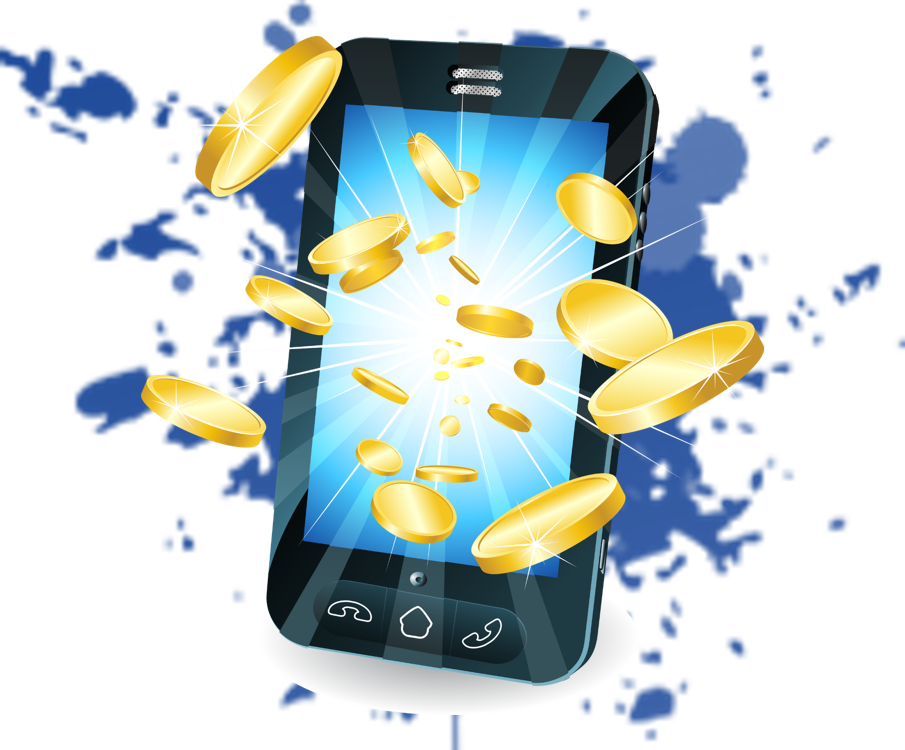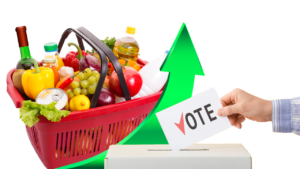“COVID-19 has catapulted us into the future,” declares Ali Amarsy, Senior Vice President of Global Product Strategy at Publicis Commerce. “In 2020, global e-commerce sales growth jumped three years in the first three months of stay-at-home mandates, with a share of overall retail matching 2023 predictions. … Huge shifts in consumer behavior have left many businesses, often working in outdated systems and processes, faced with new challenges as they try to capture increased demand.”[1] Consumer Packaged Goods (CPG) manufacturers were not immune to this trend. Journalist Steve Ellwanger (@steveellwanger) explains, “For CPG brands big and small, COVID-19 accelerated by light years the mashup of in-store and online marketing for which few brands — if any — were fully prepared.”[2] He adds, “Every consumer touch point — regardless of advertising medium — had to become shoppable ASAP.” For many consumers, the most important touch point they have on the digital path to purchase is their smartphone.
The Mobile Phone Touch Point
For years, the digital path to purchase has moved increasingly from personal computers to mobile technologies. In the mobile arena, the smartphone is clearly the dominant player. The pandemic cemented mobile’s place as the go-to device when shopping (regardless of whether they are shopping online or in a physical store). Boston Consulting Group (BCG) analysts assert, “The pandemic bump may be coming to an end, but CPG companies must recognize that certain trends, including the move toward e-commerce and newly solidified consumer habits, are here to stay.”[3] The marketing staff at the MBB Agency reports consumers check their smartphones nearly four dozen times a time. They write, “From coupons to grocery lists and in-depth product details, this constant access to what we want, where we want to go and what we want to buy is changing the way consumers shop for everything — including CPG products. In fact, 85% of smartphone owners have reported using their smartphone on a shopping trip. … This constant access to and desire for information creates a series of touch points — and for CPG brands to be effective and relevant — they must insert themselves into the mobile conversation — before, during and after the point of purchase.”[4] The MBB staff goes on to recommend “three ways CPG brands can leverage these frequent mobile moments to impact purchase decisions.”
1. Mobile Coupons & Loyalty Programs. According to the MBB staff, “There’s no denying, coupons can be a solid tactic to generate product trial — 87% of shoppers are influenced by coupons to try a new product. Delivering a coupon via a mobile device while someone is preparing for a trip to the store — or even in the aisle — is an effective method for CPG brands to deliver bottom of the funnel messaging that pushes consumers to product purchase.” A recent survey conducted by Callan Consulting for AdAdapted found, “93% of CPG marketers are looking for ways to reach consumers in the middle to lower parts of the funnel when they are engaging with a product category and making their decision to purchase the product. This is a key point in the buyer’s journey.”[5] Digital coupons are one way of achieving that goal. The MBB staff reports, “Consumers are turning to mobile before and during their shopping trips, with 42% of them typically using their mobile device to locate coupons.” According to the Callan Consulting/AdAdapted survey, “95% of CPG marketers rate Shopping List Marketing as a credible way to reach consumers. In fact, the overwhelming majority of respondents indicated Shopping List Marketing can help influence intent (94%), measure intent (93%) and create intent (91%) with shoppers. Marketers in the study also estimated that approximately 49% of consumers make digital shopping lists, and consumer studies indicate that 81% of consumers purchase every item that’s on their digital list.” The MBB staff also notes that loyalty programs are another way to get products on a digital shopping list. They explain, “Loyalty programs are designed to drive frequency and engage customers. And many of these loyalty programs — especially in the grocery space — are turning to mobile to stay connected. … Ensuring that existing promotions and coupons are included in these apps allow additional opportunities to drive CPG product purchase.”
2. Location-Based Targeting. Yory Wurmser (@YWurmser), the Principal Analyst at eMarketer, reports mobile advertising accounts for more than two-thirds of US digital ad spending.[6] The MBB staff believes this presents a golden opportunity for CPG brands when a consumer is in the store. The staff explains, “Mobile display and in-app ads can truly move the needle for CPG brands — and at MBB Agency, we have historically seen higher click-through rates on mobile for our CPG accounts. In fact, a recent research study by Catalina show that CPG brand mobile ad campaigns generated an average of half a million dollars in in-store sales. And if those ads included a promotion or coupon, that number more than doubled to an average of $933,000 when compared to branding-focused campaigns.” They go on to note that mobile ads can provide CPG brands with “deep insights into the lives of their target audience — where people live and work, which retailers they visit and brand affinity.” This data can be leveraged to provide the right product to the right audience at the right time. Location-based targeting can also improve impulse buying, which has traditionally been an important part of CPG sales. Phil DeConto, Vice President of category management and shopper insights at Ferrero, notes, “Impulse sales are no less important to ecommerce than they are to brick and mortar, but the pack types, occasions and triggers are different.”[7]
3. Mobile Email & Content. Most shoppers are looking for information when they go online; however, they are not interested in being bombarded with advertising. The MBB staff notes, “Some of the top activities on a mobile device while getting ready for a shopping trip include researching brand/product info (37%), browsing recipes (35%) and watching product videos (28%). Because consumers are spending so much time on their mobile phones, looking for and digesting brand content, it is imperative that what they interact with is optimized for a mobile experience — and this means designing for mobile first (vs. as an afterthought). … Businesses with better mobile sites have up to 140% more conversions compared to those with poor mobile sites.”
Concluding Thoughts
Molly McFarland, Founder and CRO, AdAdapted, notes, “Nearly half of consumers are using digital tools to make shopping lists. As such, retailers must leverage tools like Shopping List Marketing to reach consumers in the critical stages throughout the sales funnel. Brands that delay implementing this new technology risk losing share in today’s competitive marketplace.”[8] The bottom line is this: Mobile-first appears to be a winning strategy. Alina Yukhymenko, an IMPACT Leadership Program Participant at SAP, reports, “Research from GroupM [found] CPG manufacturers experienced a significant transition in how their products were purchased, leading to a 277 percent increase in retail sales via e-commerce channels in the second quarter of 2020 alone.”[9] Whether consumers are in their homes, on the run, or in the store, they are likely to have their smartphones handy and they love using them to help them shop.
Footnotes
[1] Ali Amarsy, “The future of commerce is here. Are you ready?” Think with Google, November 2020.
[2] Steve Ellwanger, “CPG Brands Navigate Online, In-Store Nexus,” Marketing Daily, 29 March 2021.
[3] Aman Gupta, Peri Edelstein, Kate Mann, and Seth Marcus, “The Pandemic Was a Game-Changer for CPG in 2020. Who Won, and What’s Next?” Boston Consulting Group, 11 March 2021.
[4] Staff, “Mobile Impact on CPG Shopping,” MBB Agency, 2020.
[5] AdAdapted, “96% of CPG Marketers Believe Getting on a Shopper’s Digital Grocery List is Critical to Brand Success,” Business Wire, 5 May 2021.
[6] Yory Wurmser, “US Mobile Ad Spending Will Manage to Grow in 2020,” Insider Intelligence, 6 August 2020.
[7] Paul Hiebert, “Can CPG Brands Recreate In-Store Impulse Buying Online?” Adweek, 27 April 2021.
[8] AdAdapted, op. cit.
[9] Alina Yukhymenko, “CPG Brands Pivot To Post-COVID Agility With Intelligent Tech,” Forbes, 29 April 2021.





